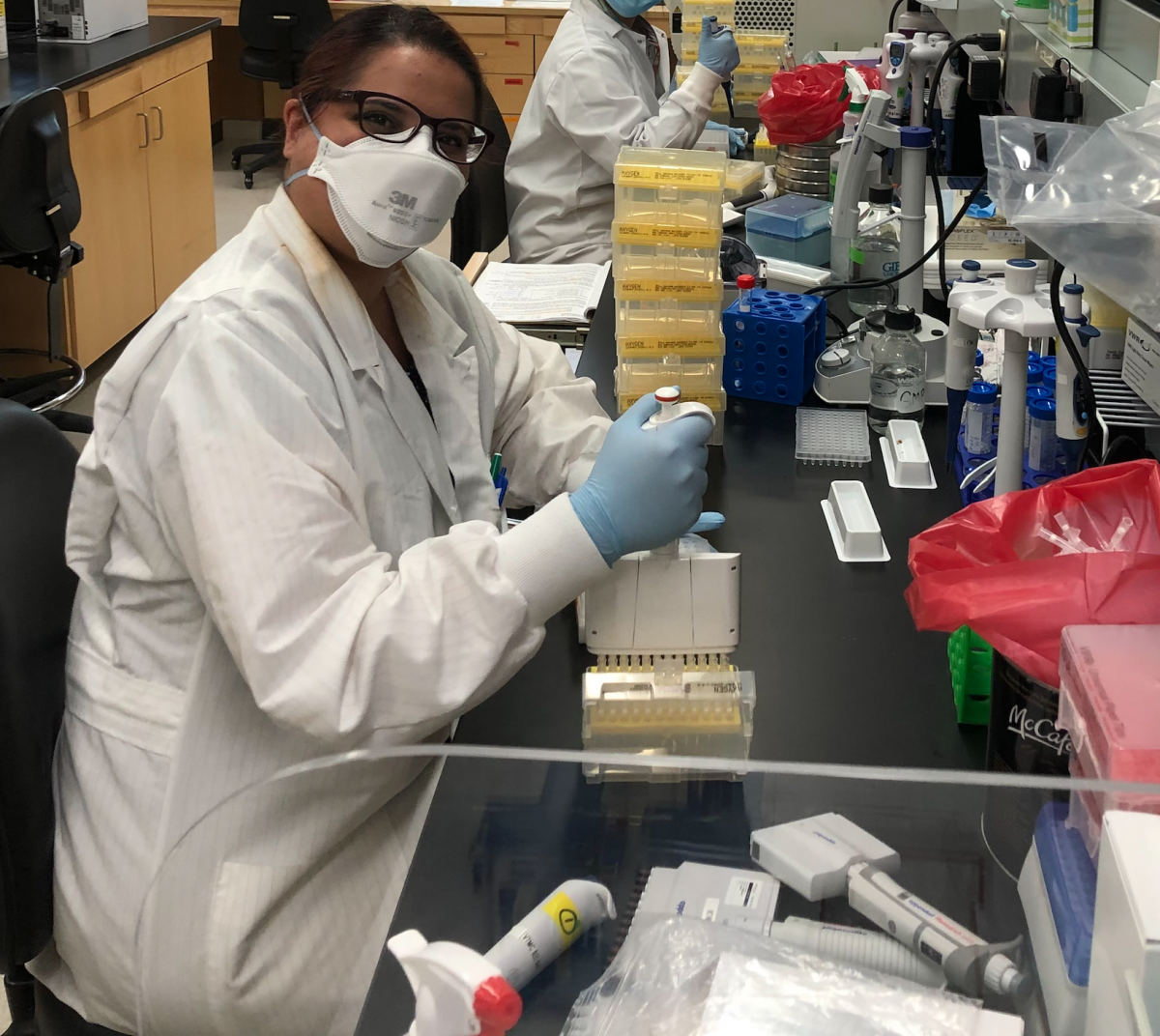
Does breastmilk contribute to the infant gut microbiome?
The microbiome is a complex community of microorganisms – the bacteria, viruses, and fungi that live in and on our body. And often, one of the most significant early exposures to our body’s own microbial community is through breastmilk and our gut.
Recent data has suggested that the development of the early infant gut microbiome may be influenced by factors such as mode of delivery, early antibiotic exposure, and feeding patterns. This research is also the focus of Zahra Pakzad’s PhD, which recently made it to the 3MT finals – the breast milk microbiome and how it might be influencing gut microbiome development.
Analyzing bacterial communities
As an MSc graduate from UBC Pathology and Lab Medicine, current PhD in Microbiology and Immunology since January 2021, and supervised by Dr. Deborah Money (OBGYN, M&I); Zahra looks at three things: 1) how does breast milk microbiome composition change in the first three months of lactation, 2) where does the breast milk microbiome come from – in particular does it come from mom’s skin, and 3) whether the breast milk microbiome is helping to colonize the infant gut in the first three months of life.
“I’m analyzing the bacterial communities of these samples using cpn60-based sequencing, then by combining this data with our comprehensive clinical data, I hope to determine how the microbiomes of these different body niches change and influence each other.”
Zahra also works with Dr. Money’s Reproductive Infectious Diseases team at the Women’s Health Research Institute (WHRI) at BC Women’s Hospital. And prior to starting her PhD, she worked as a Research Projects Manager on the same project that she transitioned to working on for her PhD – the Maternal Microbiome Legacy Project.
The LEGACY Project
 The LEGACY project examines the relationships between the maternal microbiomes (vaginal, breast milk, and areola skin) and development of the early infant gut microbiome in vaginal and caesarean deliveries. Working with an interdisciplinary team of healthcare providers, scientists, and research staff, the project recruited over 600 participants who delivered in the hospital or at home at three sites across BC: BC Women’s Hospital, Surrey Memorial Hospital, and the University Hospital of Northern BC.
The LEGACY project examines the relationships between the maternal microbiomes (vaginal, breast milk, and areola skin) and development of the early infant gut microbiome in vaginal and caesarean deliveries. Working with an interdisciplinary team of healthcare providers, scientists, and research staff, the project recruited over 600 participants who delivered in the hospital or at home at three sites across BC: BC Women’s Hospital, Surrey Memorial Hospital, and the University Hospital of Northern BC.
As part of the project, Zahra also conducted hundreds of home study visits with participants to collect vaginal swabs, breast milk, areola skin swabs, and infant stool samples, along with a whole host of clinical data through questionnaires.
Meeting hundreds of different families from all backgrounds to discuss their experiences with pregnancy and the early postpartum period, Zahra says that their contributions are what allow her team to continue this kind of research.
“Our participants’ stories on their experiences with breastfeeding and/or formula feeding, and questions on how that may impact their infants' gut health, is what inspired me to pursue research on this very topic for my PhD,” says Zahra. “How the breast milk microbiome may influence development of the early infant gut microbiome,”
Better understanding how our gut microbiomes develop
As part of her PhD work, Zahra also spent 3.5 months this past summer at the lab of one of the LEGACY co-investigators, Dr. Janet Hill, at the University of Saskatchewan. Developing her skills on the wet lab side of microbiome analysis, she analyzed almost 2000 breast milk and areola skin swab samples for her PhD project. Learning new skills such as conducting microbiome analysis, wet lab work, and bioinformatics, Zahra highly recommends that all grad students - if given the opportunity - spend time with another research team during their degrees.

Learning to combine both wet lab work and clinical data, Zahra now has a fuller picture of the scientific problem as they complement each other well. In her own research, she now looks forward to merging the analysis of the microbiome data she’s recently generated with the clinical data gathered in earlier stages of the LEGACY Project.
“If I find that the breast milk microbiome contributes to the infant gut microbiome, this could help uncover exciting new candidate organisms for the development of better probiotics and infant formulas,” shares Zahra. “On the other hand, if I find that the breast milk microbiome is not a significant contributor, this could also help provide reassurance to parents concerned that non-exclusive breastfeeding and formula feeding might be negatively impacting their infant’s gut health. Either answer will help us better understand how our gut microbiomes develop.”

